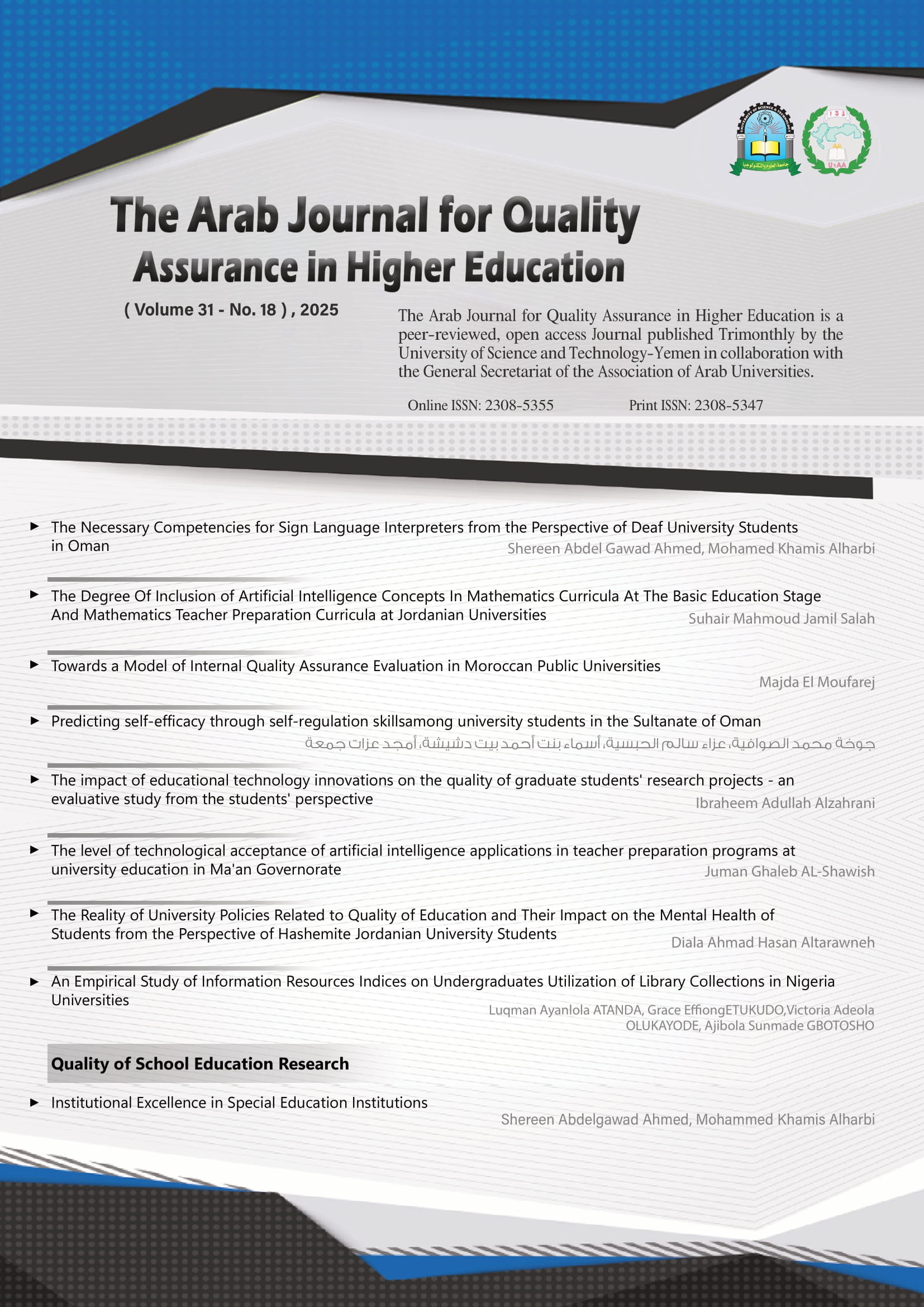The Reality of University Policies Related to Quality of Education and Their Impact on the Mental Health of Students from the Perspective of Hashemite Jordanian University Students
##plugins.themes.bootstrap3.article.main##
Abstract
The study aimed to identify the reality of university policies related to the quality of education and their impact on the mental health of students in Hashemite Jordanian universities. The study adopted the descriptive analytical approach. A stratified random sample of (420) male and female students was selected from all Jordanian universities during the second semester of the 2024/2025 academic year, including both public and private universities.
The study findings revealed that students perceive the current state of university policies related to educational quality as moderate overall, with mean scores ranging between 3.17 and 3.42. The domain of “fairness in academic evaluation” ranked highest, reflecting students’ awareness of the importance of fair assessment in enhancing their sense of justice. Meanwhile, “university administration responsiveness” ranked lowest, indicating a weakness in communication and interaction channels between students and university administration.
The results also indicated statistically significant differences across all items, suggesting that university policies related to educational quality have a significant impact on students’ mental health. Furthermore, statistically significant differences were found based on the variables of gender and academic year, in favor of female students and first-year students, indicating that these groups are more sensitive to the effects of university policies on mental health. However, no statistically significant differences were found for the variables of university type or academic major.
##plugins.themes.bootstrap3.article.details##
University policies, quality of education, mental health

This work is licensed under a Creative Commons Attribution 4.0 International License.
AJQAHE publishes Open Access articles under the Creative Commons Attribution (CC BY) license. If author (s) submit their article for consideration by AJQAHE, they agree to have the CC BY license applied to their work, which means that it may be reused in any form provided that the author (s) and the journal are properly cited. Under this license, author(s) also preserve the right of reusing the content of their article provided that they cite the AJQAHE.








